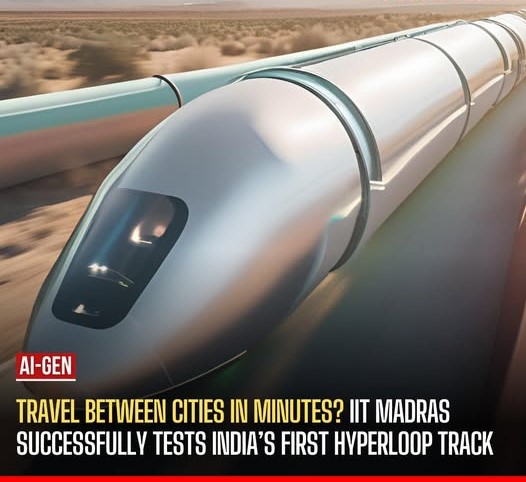Imagine traveling from Mumbai to Pune in just 25 minutes, or from Bengaluru to Chennai in under an hour. This futuristic vision is no longer a far-fetched dream. Thanks to IIT Madras, India is taking bold strides toward transforming this into reality with the successful testing of the country’s first Hyperloop track.
What is Hyperloop?
First envisioned by Elon Musk, Hyperloop is a high-speed transportation system where pods travel through low-pressure tubes at near jet speeds. It promises zero emissions, unprecedented efficiency, and a greener future for global travel.
A Breakthrough for India
On December 6, 2024, IIT Madras made history by unveiling a 410-meter test track—the first of its kind in the country. This achievement places India among a select group of innovators driving one of the world’s most transformative transportation revolutions. The development of a Mumbai-Pune Hyperloop could reduce travel time from the current 3.5 hours to a mere 25 minutes, offering a game-changing alternative to traditional road and rail travel.
Why This Matters
Hyperloop technology could redefine connectivity, reduce traffic congestion, and significantly lower carbon emissions. With its ability to move people and cargo faster, safer, and more sustainably, this innovation has the potential to save the Indian economy up to $55 billion annually in time and productivity.
“This is not just a technological achievement; it’s a testament to India’s commitment to pioneering futuristic solutions,” said a spokesperson from IIT Madras.
As India takes its first steps into the future of transportation, this breakthrough promises not just faster travel but also a greener, smarter, and more connected tomorrow. The Hyperloop dream is closer than ever—and it’s happening right here in India.


